Home > The Mental Health Impacts of Surviving COVID-19: Implications for School Mental Health Systems Leaders and Providers Part II
4:00 - 5:30 p.m. MT / 3:00 - 4:30 p.m. PT / 1:00 - 2:30 p.m. HT / 12:00 - 1:30 p.m. American Samoa
(Tuesday, November 23) 10:00 - 11:30 a.m. Marshall Islands, Pohnpei, Kosrae /
9:00 - 10:30 a.m. Guam, Northern Mariana Islands, Chuuk, Yap / 8:00 – 9:30 a.m. Palau
Six months ago in June 2021, we gathered to listen to COVID-19 survivors and long-haulers and learn about their experience to inform how we as school mental health providers and leaders prepared for the needs of staff and students for the coming school year.
The school year has begun, and the experience of long haulers continues.
Join us for a second special conversation on November 22, 2021, to check in with our panel and each other: Where are we now? As we approach the holiday season, what considerations might we need to explore to support our staff and students?
Dr. Kira Mauseth returns to provide a more in-depth share about Long COVID behavioral health and what we are learning in our research. Derek, Karla, Mieka, and Jessica (four survivors of COVID-19, all of whom identify as long-haulers) return to share where they are now and offer recommendations for school providers.
This is not a Zoom webinar; we are structuring it as a Zoom meeting to have breakouts facilitated by each panelist to learn from each other, share, and ask questions.
Together in our main room, Kira Derek, Karla, Mieka, and Jessica will discuss and share considerations for the holiday season: how to support Long Haulers, those secondarily impacted by COVID-19, and school communities.
The breakout sections (up to participant choice) include:
1. Resilience research: How might research inform our practice? Led by Dr. Kira Mauseth
2. Compounded experiences: How might we support those with Long Haul and are COVID survivors who also have lived experience with other forms of loss and grief? Led by Jessica Gonzalez
3. Workplace leadership considerations: How might we as managers, principals, administrators, and supervisors create trauma informed, long-hauler attuned workplaces? Led by Karla Monterroso
4. Student and family partnerships: How might we, as school leaders, partner with students and families to hear and listen to their experience with Long Haul and COVID-19 to inform our policies and practices? Led by Derek Canty
5. Self-care and identity: How might the experience of COVID-19 calibrate with our sense of who we are? Led by Mieka Tennant
Please note:
We are not centering the conversation on death related to COVID-19; rather, we come together to discuss and share the losses and grief related to surviving COVID and being a long-hauler.
While this conversation will focus on young people and the context of schools, we welcome all to join us.
This program is led by MHTTC Regions 9 (Arizona, California, Hawaii, Nevada, and U.S. Pacific Islands of American Samoa, Guam, Marshall Islands, Northern Mariana Islands, Federated States of Micronesia, and Palau) & 10 (Alaska, Idaho, Oregon, and Washington). We strongly encourage members of the school mental health workforce from our regional areas to attend; outside workforce is welcome as well.
Certificates of attendance and Washington state clock hours are available for this event. Further information will be provided during the event on November 22, 2021.
Resources
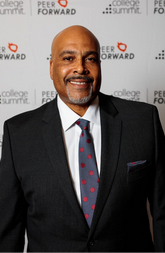
Derek Canty is the CEO and founder of Winning Edge, Inc., a training and facilitation company based in Las Vegas. Winning Edge provides training, consulting and coaching solutions to help individuals and organizations achieve maximum personal and organizational effectiveness. Derek is also the co-founder of College Summit now PeerForward, Inc., a national social non-profit organization that is based in Washington, DC, with seven regional offices. He has also developed in-school youth development tools for PeerForward that are used in classrooms around the country. Derek spearheaded the initial Diversity & Inclusion initiative and department, where he served as Chief Diversity Officer for two years.
Derek has worked with over 15,000 youth in 30 major cities across the United States and internationally in three countries and was honored by his selection as one of the lead program facilitators for President Clinton's First Annual Young Adult Symposium at Georgetown University. Today, Derek serves as a coach, facilitator, and trainer for select non-profit organizations and corporations, assisting them in team building, leadership development, and defining/strengthening their organizational culture.
Derek and his entire family of five contracted COVID in July 2020. He was hospitalized for 10 days, and continues to manage the after effects on his overall health.
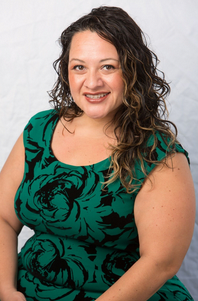
Karla Monterroso is currently a coach, strategist, and advisor for several organizations and people doing work impacted by the changing dynamics of the demographic shift--supporting both: 1) Their ability to distribute power strategically and contend with bridging the new divide between the social experience and institutional experience of power; 2) Working on the eradication of anti-Blackness in non-Black Latinx people through coaching, culture, and strategy.
Karla has spent two decades focused on growing the people and program functions of rapidly scaling social enterprises driving youth advocacy and leadership. Most recently as the CEO of Code2040 she stewarded the shift from Code2040 as a pipeline organization to an organization committed to dismantling the structural barriers to entry, retention, and promotion of Black and Latinx people in tech. She built the tools and ran the systems that supported the scale of healthcare non-profit Health Leads. Karla did similar work in college access for low-income communities with national organizations College Summit, and College Track. She is currently a board member for Alluma, a tech non-profit enabling the creation of pivotal technology necessary to build a path out of poverty. Karla is an alumnus of the University of Southern California.
Karla got sick with Covid-19 on March 13th of 2020, the first day of California’s shelter in place orders. She experienced two months of acute Covid and has now been navigating Long Haul Covid for over a year. She’s been outspoken and in national press outlets about healthcare inequities in Latinx and Black communities. She is still managing chronic tachycardia, fatigue, and assorted other symptoms due to Long Covid.
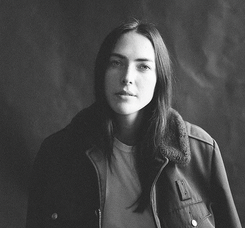
Mieka Tennant (she/her) is a communications strategist and producer. Her work is focused on accountability, inclusivity and intentional initiatives that build a stronger foundation for her clients to stand on. For over a decade she has been developing and implementing holistic communications strategies for individuals and companies. She has produced campaigns, events, and projects with various organizations--from conceptualizing a public arts initiative for incarcerated sexual assault survivors, to curating an event series for a charter school that brings together community leaders and creatives. Her love of storytelling and amplifying the voices of others led her to develop and facilitate a weekly writing group with New Village Girls Academy, where she has volunteered for the past seven years.
Mieka contracted COVID-19 the week of May 19, 2020, and for the following seven months endured the extreme effects of the virus on her body and life.
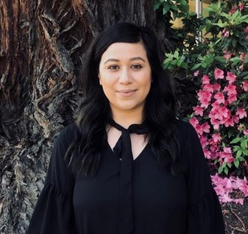 Jessica Gonzalez, MSW, is the School Mental Health Coordinator for the Mental Health Technology Transfer Center (MHTTC) Network Coordinating Office (NCO) at Stanford University School of Medicine. Jessica is coordinating the work of 12 centers that provide training and technical assistance to the mental health and school mental health workforce to increase the use of evidence-based mental health prevention, treatment, and recovery support services for students across the United States. Jessica has worked in the community as a social worker providing mental health services in school and outpatient clinic settings to children and adolescents of diverse socioeconomic, cultural and ethnic backgrounds. In addition, she has experience in project management support and coordination for research and evaluation in the areas of early childhood learning and development, special education, post-secondary education attainment, and delivery of school mental health services. Jessica has also worked for numerous high school and college programs in the Bay Area seeking to improve educational outcomes for first-generation, low-income students of color.
Jessica Gonzalez, MSW, is the School Mental Health Coordinator for the Mental Health Technology Transfer Center (MHTTC) Network Coordinating Office (NCO) at Stanford University School of Medicine. Jessica is coordinating the work of 12 centers that provide training and technical assistance to the mental health and school mental health workforce to increase the use of evidence-based mental health prevention, treatment, and recovery support services for students across the United States. Jessica has worked in the community as a social worker providing mental health services in school and outpatient clinic settings to children and adolescents of diverse socioeconomic, cultural and ethnic backgrounds. In addition, she has experience in project management support and coordination for research and evaluation in the areas of early childhood learning and development, special education, post-secondary education attainment, and delivery of school mental health services. Jessica has also worked for numerous high school and college programs in the Bay Area seeking to improve educational outcomes for first-generation, low-income students of color.
Jessica contracted COVID-19 the first week of March 2020 and was hospitalized due to severe symptoms and complications. To this day, Jessica continues managing the effects on her mental health and well-being resulting from the virus.
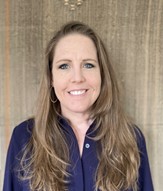 Dr. Kira Mauseth is a practicing clinical psychologist who sees patients at Snohomish Psychology Associates, teaches as a Senior Instructor at Seattle University and serves as a co-lead for the Behavioral Health Strike Team for the WA State Department of Health. Her work and research interests focus on resilience, trauma and disaster behavioral health. She has worked extensively in Haiti with earthquake survivors, in Jordan with Syrian refugees and with first responders and health care workers throughout Puget Sound the United States. Dr. Mauseth also conducts trainings with organizations and educational groups about disaster preparedness and resilience building within local communities.
Dr. Kira Mauseth is a practicing clinical psychologist who sees patients at Snohomish Psychology Associates, teaches as a Senior Instructor at Seattle University and serves as a co-lead for the Behavioral Health Strike Team for the WA State Department of Health. Her work and research interests focus on resilience, trauma and disaster behavioral health. She has worked extensively in Haiti with earthquake survivors, in Jordan with Syrian refugees and with first responders and health care workers throughout Puget Sound the United States. Dr. Mauseth also conducts trainings with organizations and educational groups about disaster preparedness and resilience building within local communities.
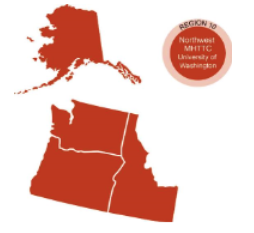
Northwest MHTTC
Email: [email protected]
Phone: (206) 744-9327
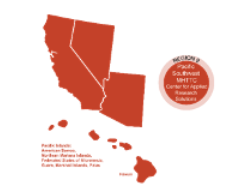
Pacific Southwest MHTTC
Email: [email protected]
Phone: (844) 856-1749